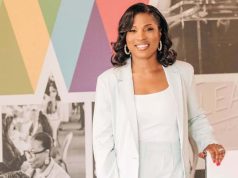In honor of Black Music Month, the Birmingham Times is highlighting some of the great musical groups across several genres. So far, the series has covered soul (June 2) and gospel (June 9). Today, it’s all about hip-hop. (We wrap up the series on June 23 with the top jazz groups.)
By now, everyone knows that hip-hop began in the 1970s in the South Bronx with a focus on MCs, break beats, and house parties. From those humble beginnings, the music grew beyond the African-American community in the late 1980s and became the world’s most listened-to music in the new millennium.
Here are some of the groups that have contributed to the genre’s popularity and staying power.
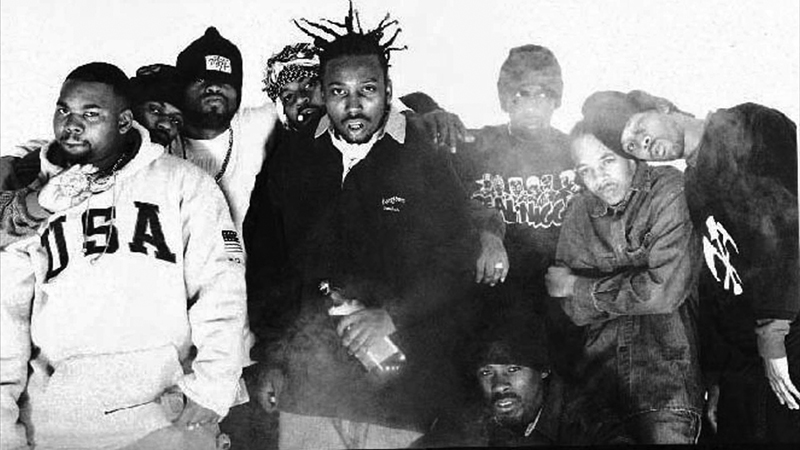
Wu-Tang Clan
They’re not in the Rock and Roll Hall of Fame. They’re not the highest selling hip-hop group of all time. They’re not known for crossover hits. Still, some argue that this could be the greatest rap group ever. Wu-Tang launched a half-dozen successful solo acts and combined incredible lyricism with a martial arts vibe to create a plethora of classic tracks that continue to stand the test of time. Individually, the Wu are great, but they will always be synonymous with unity. When the Wu-Tang Clan came out with “Enter the Wu-Tang (36 Chambers)” in 1993, it’s safe to say that the world wasn’t ready for the Staten Island, N.Y., crew—Robert “RZA” Diggs; Gary “GZA” Grice; Clifford “Method Man” Smith; Corey “Raekwon” Woods; Dennis “Ghostface Killah” Coles; Jason “Inspectah Deck” Hunter; Lamont “U-God” Hawkins; Jamel “Masta Killa” Ireif; Russel “Ol’ Dirty Bastard” Jones and Darryl “Cappadonna” Hill.
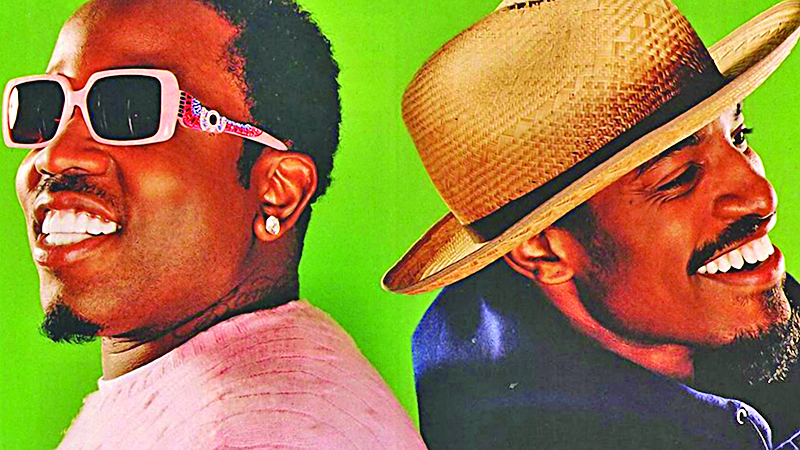
OutKast
The best-selling rap group of all time, OutKast is considered one of the originators of the Southern hip-hop movement along with UGK—but that’s where the comparisons end. On their early albums, Andre “André 3000” Benjamin and Antwan “Big Boi” Patton blended their southern twang with complex wordplay. Over time, they matured and incorporated different styles into their tunes while simultaneously crafting an incredible catalog of hits. One critic wrote: “Their evolution has been astounding. From Southern corner boys to fiery preachers to intergalactic pimps to off-kilter pop singers, their limitless imaginations have allowed them to transcend rap. It’s almost as if they’ve created their own genre. OutKast is Southern, East Coast, and neo-funk all at the same time.”
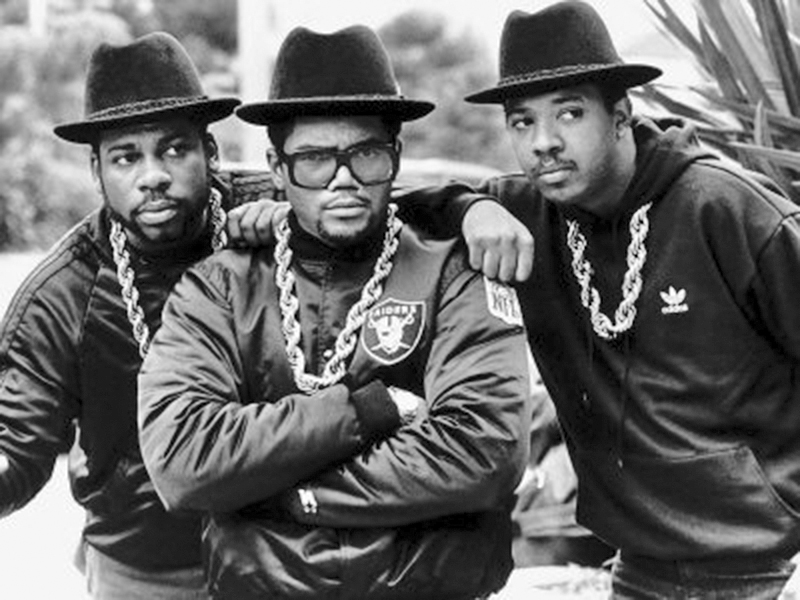
Run-DMC
“More than any other hip-hop group, Run–D.M.C. is responsible for the sound and style of [hip-hop] music,” wrote AllMusic Editor Stephen Thomas Erlewine. “Musically, they moved hip-hop and rap music away from the funk- and disco-oriented sound of its beginnings into an altogether new and unique sonic imprint.” Onstage, old-school rappers had previously performed in flashy attire and colorful costumes and, in the case of acts like Whodini, had background dancers. Run–D.M.C. performed with only Joseph “Run” Simmons and Darryl “D.M.C.” McDaniels out front, and Jason “Jam-Master Jay” Mizell on the turntables behind them, in what is now considered the classic hip-hop stage setup: two turntables and microphones. Historically, the group achieved a number of notable hip-hop milestones—the first number-one R&B-charting rap album, the first rap act to appear on the cover of Rolling Stone magazine, and the first rap act to sign a major product endorsement deal (Adidas). Run–D.M.C was inducted into the Rock and Roll Hall of Fame in 2009.
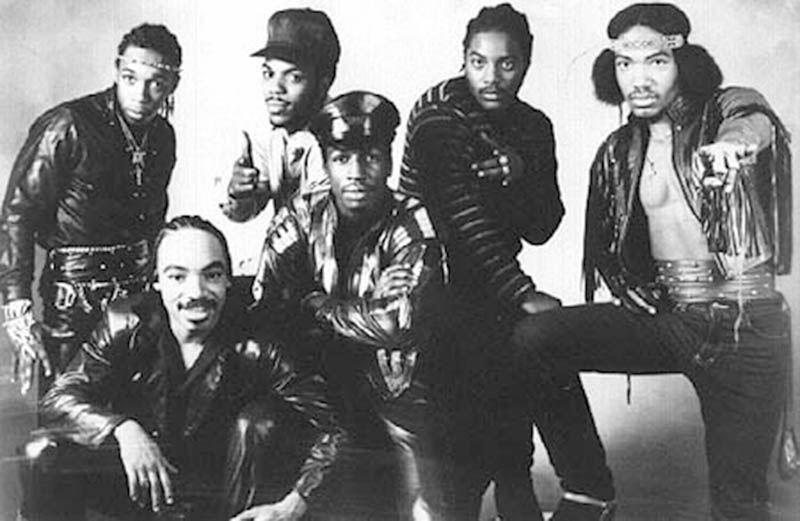
Grandmaster Flash and The Furious Five
“It’s like a jungle/sometimes it makes me wonder/how I keep from going under.” That may be one of the most iconic lines in all of hip-hop and arguably one of the most recognizable in music. Lead rapper Melle Mel kept returning to the same weary conclusion about life in the hood on the group’s acknowledged magnum opus, “The Message.” It was Grandmaster Flash and the Furious Five—Joseph “Grandmaster Flash” Saddler; Robert “Keef Cowboy” Wiggins; Nathaniel “Kidd Creole” Glover; Melvin “Melle Mel” Glover; Guy “Rahiem” Williams; Eddie “Mr. Ness/Scorpio” Williams—who fomented the musical revolution known as hip-hop. The combination of Flash’s turntable mastery and the group’s energetic raps, which ranged from socially conscious to frivolously fun, made for a series of 12-inch records that forever altered the musical landscape. In 2007, Grandmaster Flash and the Furious Five became the first hip-hop group inducted into the Rock and Roll Hall of Fame.
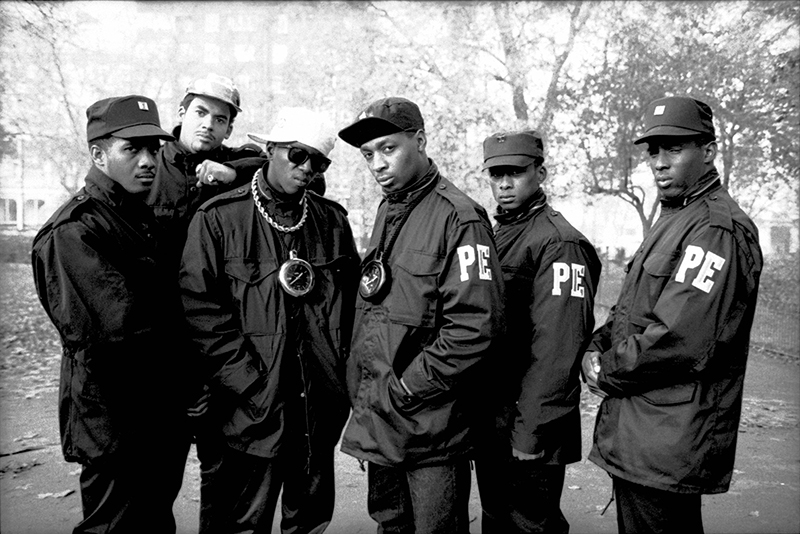
(Photo by David Corio/Redferns)
Public Enemy
Carlton “Chuck D” Ridnehour, William “Flava Flav” Drayton, and the Bomb Squad burst onto the scene with “Yo! Bum Rush the Show”—and they never looked back. Every Public Enemy album had a message, and it wasn’t subtle. Chuck D made sure anyone listening knew exactly what he was talking about on “Fight the Power,” “911 is a Joke,” “Can’t Truss It,” and “Shut ‘Em Down.” This group was not afraid to take on American icons like Elvis Presley and John Wayne in favor of their own heroes. With Richard “Professor Griff” Griffin; Norman “Terminator X” Rogers, and the S1Ws providing backup, Public Enemy became the face of counterculture and one of the biggest forces of nature in hip-hop history. The group was inducted into the Rock and Roll Hall of Fame in 2013.
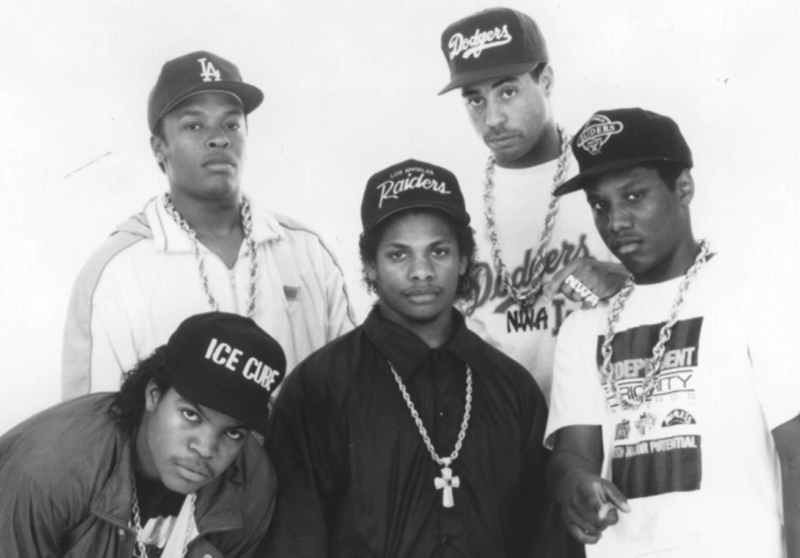
N.W.A.
Nearly 30 years since they released their first album, Andre “Dr. Dre” Young; O’Shea “Ice Cube” Jackson; Eric “Eazy E” Wright; Lorenzo “MC Ren” Patterson; and Antoine “DJ Yella” Carraby remain at the forefront of hip-hop. Songs like “Straight Outta Compton,” “F**k Tha Police,” and “Express Yourself” are still referenced today, and a recent biopic introduced the group to an entirely new generation of fans. The legendary group said what they wanted, when they wanted—and didn’t care who was offended. N.W.A. was inducted into the Rock and Roll Hall of Fame in 2016.
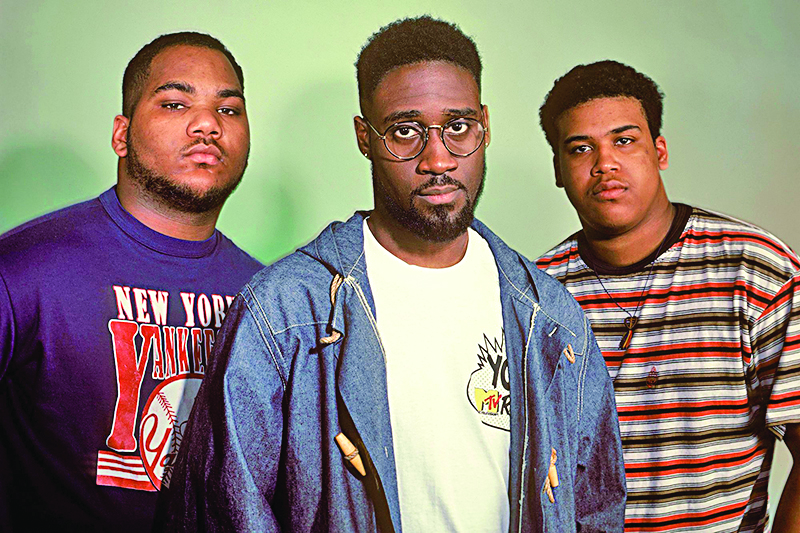
De La Soul
Very few debut albums—of any genre—were as critically acclaimed as “3 Feet High and Rising.” In fact, it was selected by the Library of Congress as a 2010 addition to the National Recording Registry, which selects recordings annually that are culturally, historically, or aesthetically significant. “Me Myself and I” from the album is among the rap classics. Kelvin “Posdnous” Mercer; David “Trugoy the Dove” Jolicoeur, and Vincent “Maseo” Mason weren’t afraid to differentiate themselves from what everyone else was doing by providing a balance to a lot of the gangsta rap that was popular at the time. De La Soul is one of two groups on this list who were members of the Native Tongues posse, a hip-hop collective that introduced artists like the Jungle Brothers, Black Sheep, Queen Latifah, and the next group on our list.
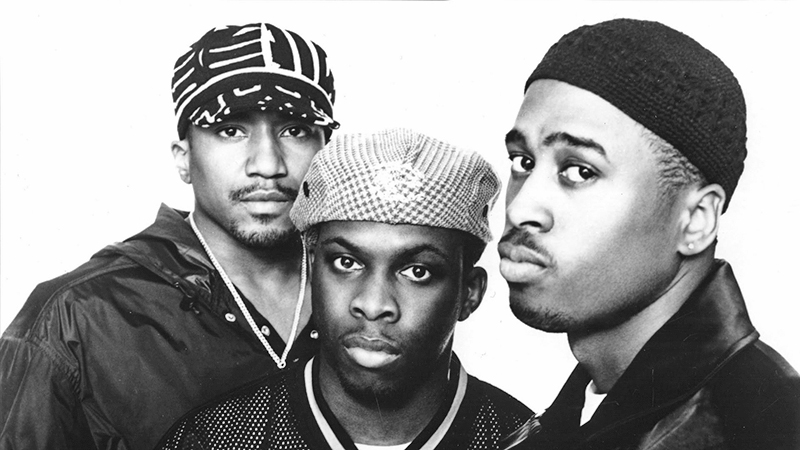
A Tribe Called Quest
Put together Kamaal “Q-Tip” Fareed (one of most talented producer-rapper hybrids in hip-hop); Malik “Phife Dawg” Taylor (a man of memorable raps) Ali Shaheed Muhammad (a magnificent producer and DJ), and Jarobi White (part-time member and full-time friend), and you have a standout group. While West Coast acts glorified gangsta culture, and later East Coast acts were obsessed with money and fame, Tribe sat comfortably in the middle, addressing relatable, real-word issues and encouraging listeners to just be themselves.
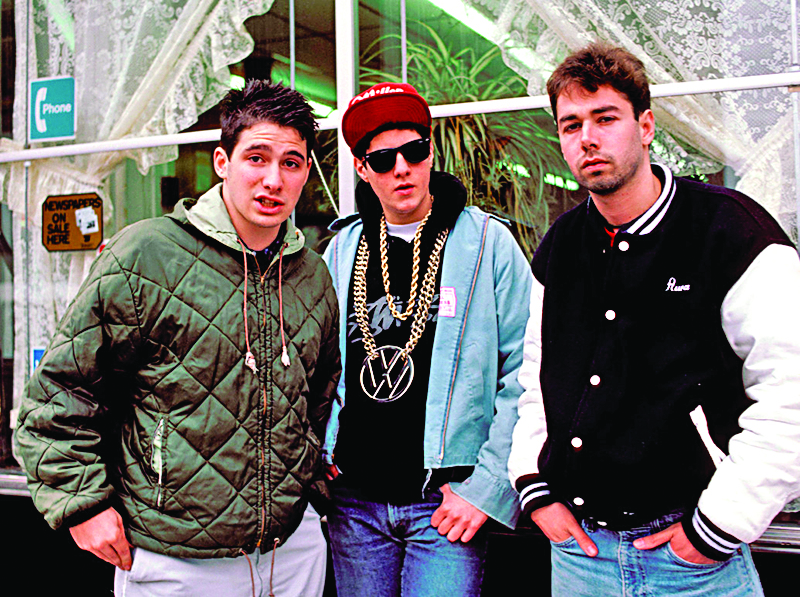
Beastie Boys
Of their eight albums, all went but one went double or triple platinum, and their debut album sold 10 million copies. Adam “Ad-Rock” Horovitz, Adam “MCA” Yauch, and Mike “Mike D” Diamond started as a punk group. But after the success of their first hip-hop song “Cookie Puss,” they put down the instruments and picked up the mics. The rest is music history. With the addition Michael “Mix Master Mike” Schwartz, they were a magnificent live act.
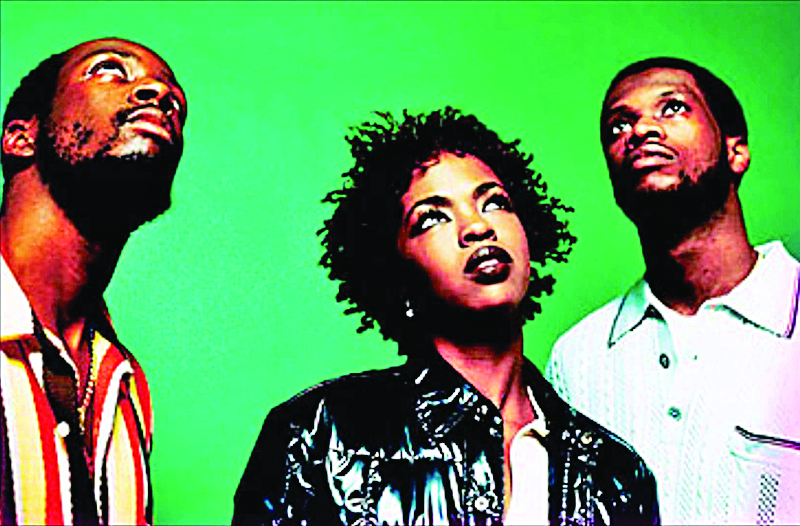
The Fugees
Hard to believe their debut album bombed. But who even remembers that? The Fugees’ second album, “The Score,” sold six million units and is widely regarded as a hip-hop masterpiece. Tracks like “Ready or Not,” “Fu-Gee-La,” and “Killing Me Softly” turned the group into hip-hop royalty. After releasing their classic album, all the group’s members embarked on solo projects. Lauryn Hill started work on her critically acclaimed “The Miseducation of Lauryn Hill.” Wyclef Jean began producing for a number of artists, including Destiny’s Child and Carlos Santana. And Pras Michel, along with Mya and Ol’ Dirty Bastard, recorded the single “Ghetto Supastar (That Is What You Are)” for the soundtrack of “Bulworth,” which starred Warren Beatty and Halle Berry. As a group, the Fugees never made another album together.
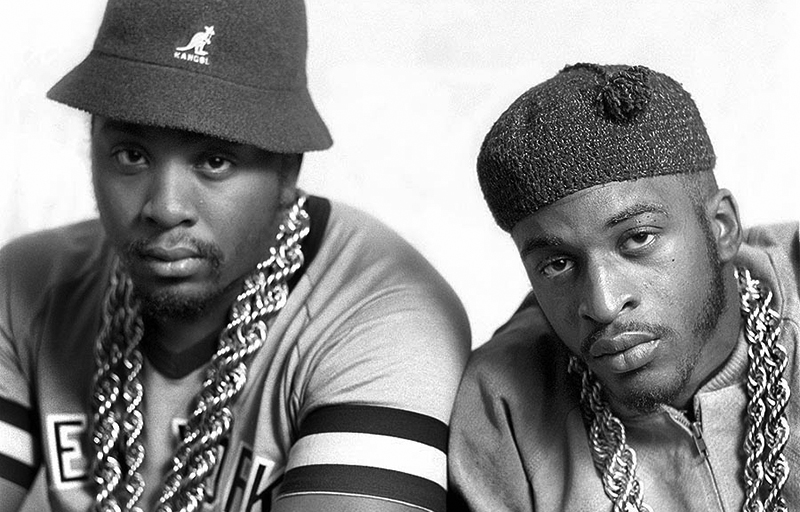
Eric B and Rakim
Universally recognized as the premier DJ and MC team in all of hip-hop during rap’s so-called golden age in the late 1980s, Eric “Eric B” Barrier and William “Rakim” Griffin are among the best ever. With Rakim providing his profound lyricism and Eric B on the turntables, the group went through a five-year stretch with classics like “Paid in Full,” “Follow the Leader,” “Microphone Fiend,” and “Don’t Sweat the Technique.” Rolling Stone magazine said the group’s debut album is “exhibit A in the case for Rakim as hip-hop’s John Coltrane. His incandescent thought-bubble rap on ‘Paid in Full’ is all iced flow and sly beat-dodging, a good-versus-evil meditation that calmly frames thug life inside real-life economics (an appetite for ‘a nice big plate of fish/Which is my favorite dish’) and incorporates a novelist’s eye for detail (‘Ain’t nothin’ but sweat inside my hand’).”
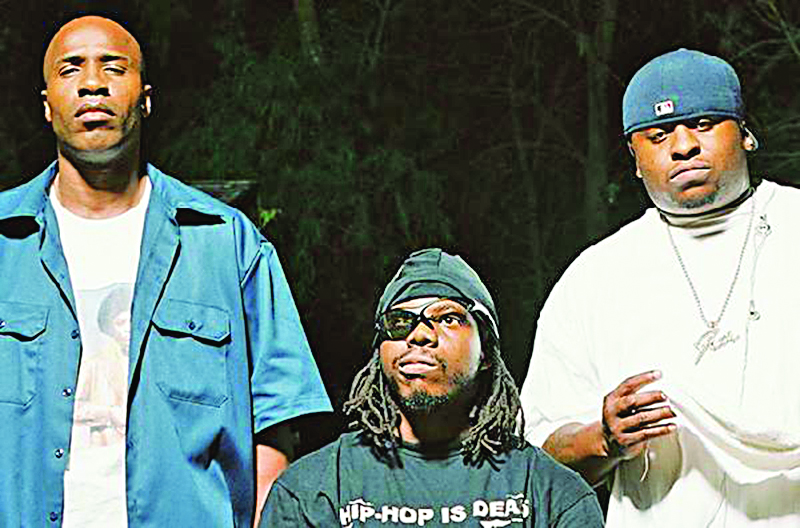
The Geto Boys
Some consider the Geto Boys—Brad “Scarface” Johnson; Willie “Willie D” Dennis, and Richard “Bushwick Bill” Shaw—gangsta rap pioneers. Their lyrics were certainly some of the most hardcore in the genre at the time, but to focus on that would be to sell short the Houston-bred group. Their albums “Grip It! On That Other Level” and “We Can’t Be Stopped” are Southern hip-hop classics, and songs like “Damn, it Feels Good to Be a Gangsta” and “The World Is a Ghetto” truly showcase their talent. One would be hard pressed to find a better rap-song opening than the first line of “Mind Playing Tricks on Me”—“I sit alone in my four-cornered room staring at candles.”
Sources: Whatculture.com, Soulinstereo.com, mtv.com, en.encylcopedia.org


